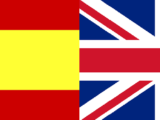Georgian translations are not just a technical matter: they are a gateway to one of the most unique languages of Eurasia. Georgian, the official language of Georgia, does not resemble any European language nor share direct roots with the larger known language families. It belongs to the Kartvelian family, unique in its type, and is written with an alphabet that, at first glance, looks like something out of a medieval calligraphic jewel.
But beyond the exotic or aesthetic, Georgian is a living language, expanding, and amidst great regional dynamics: relations with the European Union, growing diaspora, tourism, technological development, international trade, and educational cooperation. In this context, Georgian translations have become more necessary than ever.
The Georgian language: a linguistic singularity
Before diving into the importance of Georgian translations, it is useful to understand the particularity of the language. Georgian does not resemble Russian, Turkish, or Arabic. Its grammatical structure is unique, and its verbal system especially complex. Additionally, they write it with its own alphabet: Mkhedruli, a stylized and elegant form that has evolved from ancient scripts like Asomtavruli and Nuskhuri.
This alphabet, which has no uppercase letters and consists of 33 characters, is a challenge for many translators, especially in digital or technical environments where proper text encoding and presentation are crucial.
Why are Georgian translations needed?
Despite Georgia being a medium-sized country, its strategic location in the Caucasus, between Europe and Asia, makes it a crossroads for commerce, culture, and politics. The translation needs in Georgian are wide-ranging:
- Legal and notarized translations: needed for residency procedures, marriage, business, education, etc.
- Tourism translations: the rise of tourism in Georgia has sparked a demand for translated content to and from Georgian.
- Technical and scientific translations: especially in the context of international projects, scholarships, university cooperation, and publications.
Additionally, the growing Georgian migration in Europe and the United States has created a demand for translation services in sectors like law, healthcare, and education.
Georgian translations as a professional challenge
Translating to or from Georgian is not a simple task. There are several factors that complicate the process:
- Complex verbal morphology: Georgian verbs contain information about the subject, the direct and indirect object, tense, aspect, and mood. This richness can be difficult to convey in analytical languages like Spanish or English.
- Absence of articles: Georgian does not have definite or indefinite articles, so context becomes crucial.
- Absence of articles: Georgian does not have definite or indefinite articles, so context becomes crucial.
- Unique vocabulary: while there are borrowings from Russian, Turkish, and other neighboring languages, the majority of Georgian vocabulary is indigenous, making it difficult to use automatic translation tools.
For these reasons, native professionals or those with a deep understanding of the linguistic and cultural nuances of the language should handle Georgian translations.

Culture, context, and nuances
It is not enough to simply translate words: the context, tone, and intention of the message must be interpreted. In the case of Georgian, this is even more important due to the peculiarities of its culture.
For example, the formulas of courtesy are highly valued and vary according to age, social status, or level of formality. Translations of institutional or commercial documents must respect these levels of address to maintain professionalism and respect.
Moreover, proverbs, metaphors, and historical references are common in both everyday and literary language. Translating these requires cultural knowledge and sensitivity beyond grammar.
Georgian translations in the digital age
One of the biggest challenges today for Georgian translations is digitalization. Despite the growth of automatic translation tools, Georgian is still underrepresented in many systems. Human translators are still essential, especially in technical, legal, or literary contexts.
Moreover, companies looking to internationalize their products or services should consider Georgian localization as a strategic step. It’s not just about translation: it’s about adapting content, user interfaces, and user experience to the particularities.
Translation as a bridge between worlds
Georgian translations are helping connect Georgia with the rest of the world and vice versa. From international agreements to cultural initiatives, scientific collaborations, and digital platforms, language is the vehicle that makes these relationships possible.
For the Georgian diaspora, translation becomes an inclusion tool, allowing them to navigate new environments without losing touch with their native language.
If you need professional, culturally adapted Georgian translations, at Max Translation, we have native translators specialized in this Caucasian language. Our services range from sworn and technical translations to digital content localization, ensuring the highest precision in every project.
With extensive experience in the nuances of the Mkhedruli alphabet and Georgian grammatical particularities, we offer comprehensive linguistic solutions for legal, tourism, academic, and business documents.
Do not hesitate to contact us and request your quote today.




